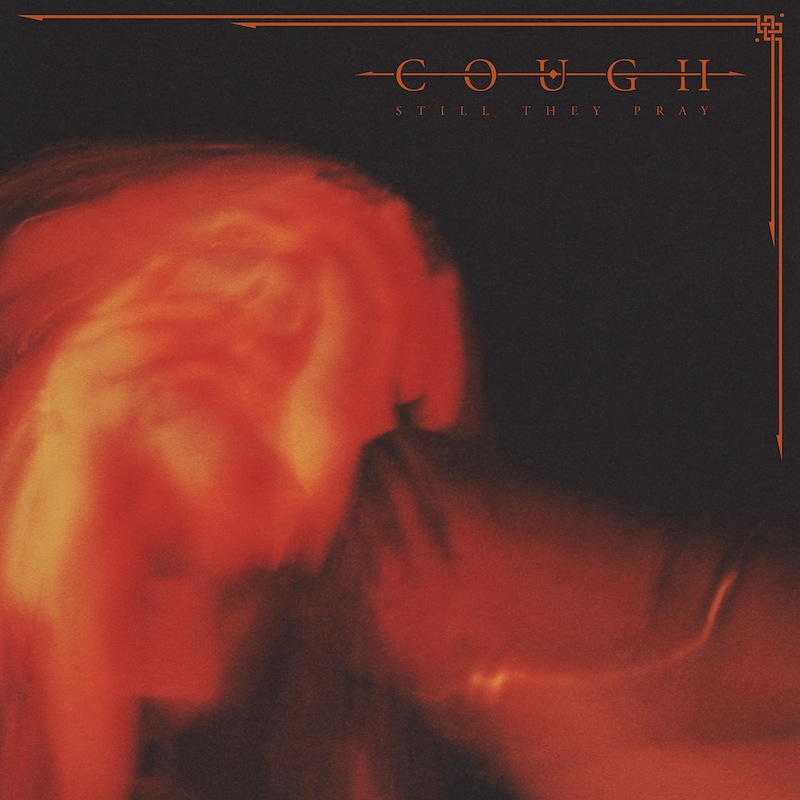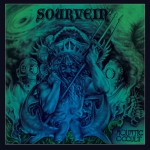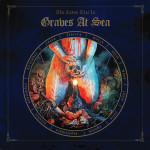Cough : Still They Pray

Cough have been in an interesting position for a few years now. Doom’s been flourishing around them, with bands like Pallbearer, Windhand, Bell Witch and Yob finding critical and even some degree of mainstream acclaim. All but Yob are of the same generational class, and Windhand is even from the same scene, having shared a split with Cough in the past. Yet for Cough, that attention has proven somewhat fleeting.
Part of this comes, one must imagine, from how fully formed those other bands seemed almost immediately. Pallbearer achieved a grandiose, stately, and prog rock-enriched doom metal, Windhand a Southern gothic emerald doom, Bell Witch a sickly perpetual despair and Yob a spiritual ecstasy. Cough seemed to waver at the threshold; their debut, Sigillum Luciferi, featured a satanic posturing which was competent but didn’t transcend, while their sophomore album, Ritual Abuse, took on aspects of a kind of tortured spiritual agony—an ecstasy-through-pain that almost broke the surface but never quite fully emerged. The leap between those two records was profound though, about as large as the jump between Windhand’s first two, which marked well the arrival of this, their third.
Still They Pray has isolated that distinguishing feature, the raggedness and punky snot to both David Cisco and Parker Chandler’s vocals (perhaps informed by immersion in the punk scene of Richmond, Virginia?) being turned less toward an avenue of petulant rebellious power and instead to a spiritual agony that breaks into the physical. There’s a tremendous undercurrent of pain in these songs, brute pain, physical pain, arising from spiritual torment; more than half the record’s track titles reference torture, bleeding or the state of death, while the first two focus on being hounded by malevolent spiritual forces beyond the limits of the body and mind.
This, then, becomes Cough’s road of differentiation, breaking from the introspective agonies of Pallbearer and the spiritual ecstasy of Yob. On paper, they land closest to Bell Witch, asking and evoking similar questions of torture of the spirit by a universe and power beyond the self that the self might never hope to overcome. But the figures in Bell Witch’s extended meditations on suffering find themselves enraptured in their agony to such a degree that no contemplation or yearning beyond can be attained; they are wholly given over to their pain, in memory and in mind. The differentiating figure of Cough’s figures is in the title (and closing track): still they pray.
This marks a more fully developed figuring of the symbols and motifs of Cough’s first two records. For Cough, the people whose experiences make the center of their songs are not being punished, necessarily, nor are they necessarily being tried or even rewarded in some kind of negative theology. They are Satanic blasphemic adherents; this agony they endure is a mechanical component of their spiritual process, but is not the totality of their aim, which is always a communion with some greater evil beyond. Their suffering is closer to the flagellations, starvations and over privations of monks and nuns of the cloister, in this case one devoted to a black inverted god. Suffering is something endured, deserved, violent, vicious, but only a function to increase the union of the soul with Satan.
Their riffs had long ago attained the intensity they needed for these kinds of gestures, but the production on this record along with the aesthetic unity of the cover and titling is what pulls this together. Like the clarity Billy Anderson brought to Pallbearer which allowed them to more fully accomplish the progressive end of their doom metal, the dynamic space and higher fidelity recording of Cough’s fuzzed out, heavily distorted down-tuned paeans to evil gives the sonics greater body and heft, allows them to overwhelm the listener sensorially more, and offers more matter and range for the vocals to feed (negatively) off of. This record is a perfect sign of how proper recording and production of set of songs can make what you previously thought was a decent band reveal itself to be much more than that.
Similar Albums:
 Windhand – Grief’s Infernal Flower
Windhand – Grief’s Infernal Flower
 Sourvein – Aquatic Occult
Sourvein – Aquatic Occult
 Graves at Sea – The Curse That Is
Graves at Sea – The Curse That Is
Langdon Hickman is listening to progressive rock and death metal. He currently resides in Virginia with his partner and their two pets.

